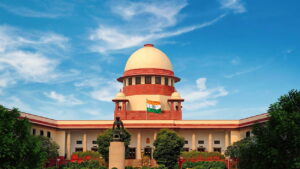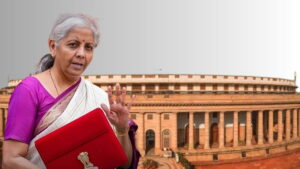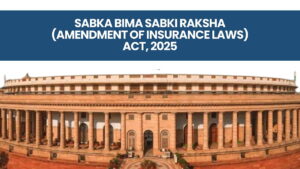It must pierce our collective conscience – why does a country that criminalizes rape with the harshest punishments stay silent when the rapist wears a wedding ring!
India is among the few countries in the world that have not still not criminalised marital rape. In most of the common law countries, the law against the same has been enforced either statutorily or through judicial precedents.
If we delve into the history to trace the origin of a mindset that grants such immunity, we find reference to 7th-century writings of English jurist Sir Matthew Hale, who famously stated, “the husband cannot be guilty of a rape committed by himself upon his lawful wife, for by their mutual matrimonial consent and contract the wife hath given up herself in this kind unto her husband, which she cannot retract.”
This was based on the ideology that by marrying her husband, a woman gave her perpetual consent to sexual relations and was bound by an irrevocable contract. This principle also known as ‘Hale’s doctrine’ was followed in the UK and inherited and retained by common law countries worldwide for centuries.
It was only in 1992, that in R v R, the House of Lords did away with the exception. The court upheld the conviction of a husband for attempted rape upon his wife. It refused to accept the defendant’s defence of the martial rape exception. The court significantly held that there was no marital rape exception under English law and this was a ‘common law fiction’ that existed. The concept of irrevocable consent of a wife to her husband was classed as an unacceptable concept in modern times as each is seen as an equal partner in a marriage. The relationship between the parties to rape does not matter; rape is rape.
At the global level, more than 150 countries have criminalised marital rape. Punishments vary from years to life imprisonment, and generally there is no disparity with non-marital rape.
The Convention on the Elimination of All Forms of Discrimination Against Women (CEDAW) which India signed in 1980 and ratified in 1993, prohibits violence against women and emphasizes the state’s duty to eliminate it. It defines discrimination based on sex and requires states to take all appropriate measures to eliminate it, including in the domestic sphere. Marital rape is seen as a form of sex-based discrimination against women which violates the principle of gender equality.
Violence against women has been recognised as a public health issue and a violation of women’s human rights. Goal 5.2 of the 2030 Agenda for Sustainable Development Goals has emphasised on elimination of all forms of violence against all women and girls in the public and private spheres including trafficking and sexual and other types of exploitation.
According to World Health Organization (WHO) estimates from 2012, among women who had ever been in an intimate partnership, 6–59% reported sexual violence by a partner at some point in their lives. The report further suggests that such violence affects women’s physical and mental health through direct pathways, such as injury, and indirect pathways, such as chronic health problems that arise from prolonged stress. A history of experiencing violence is therefore a risk factor for many diseases and conditions.
Another aspect which is equally troubling is that around twenty countries the world today including Bahrain, Italy and Lebanon allow rape accused to escape criminal prosecution by marring the victim. This is famously known as ‘Marry your rapist’ law.
India remains among the few countries where penal law still exempts husband from being prosecuted for committing rape on his wife.
Section 375 of the Indian Penal Code (IPC) defines rape but includes an exception (Exception 2) that till 2017 stated: “Sexual intercourse by a man with his own wife, the wife not being under fifteen years of age, is not rape”. In October 2017, the Supreme Court increased the age limit in this exception to 18 years in the case of Independent Thought v. Union of India, (2017) 10 SCC 800. This ruling harmonized the Indian Penal Code with the Protection of Children from Sexual Offences (POCSO) Act by establishing a universal age of consent at 18 years, thereby protecting the human rights and bodily integrity of married girl children and addressing a significant legal incongruity in Indian law.
The punishment for rape is India is determined by the specific circumstances of the crime, with penalties becoming more severe for aggravated offenses. Under the IPC, a general case of rape carries a minimum of 10 years of rigorous imprisonment, which can extend to life imprisonment. However, the law provides for much harsher punishment in cases of aggravated rape, such as when the victim is a minor, a pregnant woman, a police officer is the perpetrator, or it’s a case of gang rape. For instance, the rape of a girl under 12 years of age can lead to a minimum of 20 years of rigorous imprisonment, which may extend to imprisonment for the remainder of the person’s natural life, or even the death penalty. These punishments have largely been carried over into the BNS, with some re-numbering of provisions, as India’s legal system transitions to the new criminal codes.
While the law does not criminalise marital rape, a specific form of marital rape is criminalised, i.e. non-consensual sexual intercourse when the wife and husband are living separately on account of judicial separation or otherwise. (Section 376B, IPC)
With the enactment of the Bharatiya Nyaya Sanhita (BNS), which came into effect on July 1, 2024, replacing the IPC, the exception continues under Section 63. Exception 2 to Section 63 of the BNS states that “sexual intercourse or sexual acts by a man with his own wife, the wife not being under 18 years of age, is not rape”.
The Indian Penal Code, drafted in 1860, contained the marital rape exception, which effectively immunised non-consensual sexual intercourse by a husband with his wife from the purview of rape. Despite decades of social reform and judicial discourse, the said exception has been carried forward into the Bharatiya Nyaya Sanhita, 2023, thereby reflecting a clear lack of political will to address this glaring violation of a woman’s bodily autonomy and dignity.
Despite various opportunities for legislative reform, the Indian Parliament has refrained from criminalizing marital rape:
- In the 172nd Law Commission Report published in 2000, the Law Commission of India rejected the need to remove the marital rape exception while considering proposals to reform India’s laws on sexual violence. It was cited that such a move would lead to extensive interference in the institution of marriage.
- In 2015, when questioned in Parliament, the idea of criminalizing marital rape was dismissed with the view that “marital rape cannot be applied in the country since marriage was treated as a sacrament or sacred in the Indian society”
- A significant push for criminalizing marital rape came from the Justice J.S. Verma Committee, formed in the aftermath of the 2012 Delhi gang rape case. The Committee recommended removing the marital rape exception, stating explicitly that “the relationship between the accused and the complainant is not relevant to the inquiry into whether the complainant consented to the sexual activity”. The Committee emphasized that “the law ought to specify that marital or other relationship between the perpetrator or victim is not a valid defence against the crimes of rape or sexual violation”. It further noted that the exemption for marital rape stems from “a long outdated notion of marriage, which regarded wives as no more than the property of their husbands”. Despite these strong recommendations, the Criminal Law Amendment Act of 2013, which incorporated several other suggestions from the Committee, did not remove the marital rape exception. Also, the Parliament Standing Committee on Home Affairs that reviewed the amendment bill refused to accept this recommendation, reasoning that sufficient remedies already existed in criminal law, through the concept of cruelty as under Section 498A of the IPC.
On the same lines, in 2021, the Kerala High Court held that merely because the law does not recognize marital rape under penal law, it does not prevent courts from recognizing it as a form of cruelty for granting divorce.
As per a Supreme Court’s ruling, the meaning of rape has to be understood to include marital rape for the purpose of Medical Termination of Pregnancy Act. The Court specifically held that wives, who conceived out of forced sex by their husbands, will also come within the ambit of “survivors of sexual assault or rape or incest” mentioned in Rule 3B(a) of the Medical Termination of Pregnancy Rules.
As far as role of judiciary is concerned, prior to 2022, the martial rape exception law was challenged by women’s organizations and human rights groups particularly after the government failed to address the issue in the 2013 Criminal Law Amendment Act. But these challenges did not yield any significant outcome.
The most recent and noteworthy development in this issue is Delhi High Court’s Split Verdict in RIT Foundation v. Union of India, (2022) 3 HCC (Del) 572.
The core issue before the High court was whether Exception 2 to Section 375 should remain on the statute? Justice Rajiv Shakdher held that the exception was violative of the Articles 14, 15(1) and 21 of the constitution as it creates a distinction between married and unmarried women regarding the crime of rape and treats married women differently from other perpetrators of sexual assault. It perpetuates an archaic understanding of marriage as implying irrevocable consent to sexual acts, denying women bodily autonomy and dignity within the marital institution.
Justice Hari Shankar, on the same bench however, acknowledged the exception as part of a legislative framework that inherently distinguishes between sexual acts within and outside of marriage. He maintained that a valid marriage inherently entails a “legitimate expectation” of sexual relations between spouses, which forms a reasonable basis for the legal distinction.
During the hearing, the Union of India argued that the challenge to the marital rape exception raises complex, and sensitive issues that and have far-reaching social consequences. The centre had argued that such matters involve policy considerations, which fall within the exclusive domain of the legislature, not the courts. And that removal or retention of the marital rape exception would require wider consultation with stakeholders before any decision can be taken.
Another judgment from 2022 is of relevance here. In Hrishikesh Sahoo v. State of Karnataka, 2022 SCC OnLine Kar 371, the Karnataka High Court held, exempting husbands from rape allegations violated Article 14 of the Constitution. The Court rejected the petitioner’s plea to drop rape charges against him based on the marital rape exception.
Post these judgments, the matter is now before the Supreme Court. The Apex Court is currently considering a batch of petitions challenging the constitutional validity of the marital rape exception. These include inter alia an appeal following the Delhi High Court’s split verdict in the RIT Foundation case, a plea by Hrishikesh Sahoo against the Karnataka High Court’s decision that allowed his prosecution for marital rape, a petition filed by Dalit activist Ruth Manorama directly before the Supreme Court and multiple PILs challenging the constitutionality of the marital rape exception.
In January 2023, a Bench comprising the then Chief Justice D.Y. Chandrachud and Justice P.S. Narasimha clubbed these petitions and listed them for hearing. The Court later issued notices to the Centre on these petitions, including a similar plea challenging the BNS provision on the issue after the new criminal laws came into effect.
The Supreme Court commenced hearings on the consolidated cases on October 17, 2024, with a three-judge bench comprising then Chief Justice D.Y. Chandrachud and Justices J.B. Pardiwala and Manoj Misra. On the first day of hearings, the Court had raised significant questions about the logic behind the exception. Justice Pardiwala questioned why preliminary acts such as wrongful confinement, criminal intimidation, and assault of a wife by her husband are considered offenses, but the act of forced sexual intercourse that follows is not criminalized.
However, on October 23, 2024, the Court deferred the hearings, noting that a decision could not be rendered before the then Chief Justice Chandrachud’s retirement on November 10, 2024. The matter was directed to be listed before a new bench. But there have not been any hearings on the matter since then.
Even before the Top Court, the Union opposed the marital rape criminalization. In its affidavit to the Supreme Court, the Government argued that if sexual acts by a man with his own wife are made punishable as rape, it may severely impact conjugal relationships and lead to serious disturbances in the institution of marriage. That there was no violation of Article 14 as married and unmarried women are not equally placed. This is because marriage creates a continuing expectation of reasonable sexual consent/ access. The Union also raised concerns with respect to difficulty in proving whether consent was given in the context of a marital relationship, potentially leading to misuse of amended provision.
However, contrary to the Union’s stand, the Karnataka government has filed an affidavit before the Apex Court expressing support for the Karnataka High Court’s decision that held the marital rape exception as unconsitutional.
While there are challenges that highlight the evidentiary difficulties in prosecuting marital rape, particularly the burden of proving lack of consent within an institution where sexual relations are presumed, they cannot be allowed to dilute the protection of bodily autonomy. It is true that the private nature of the offence means that corroboration is often difficult, and courts must tread carefully to avoid misuse while still ensuring justice. A balanced approach is therefore required, one that weighs the rights of both spouses while recognising the lived realities of women who face violence within marriage.
Marriage is undeniably a cornerstone of every society, but it cannot be a shield for violence. The institution of marriage derives its strength from equality, dignity, and mutual respect, not from one partner’s unchecked control over the other. It is high time that women stop being confined behind the bars of outdated societal expectations, and that the law acknowledges them as equal partners within marriage. Protecting the sanctity of marriage must go hand in hand with protecting the dignity and autonomy of the individuals within it. Only then can the institution of marriage continue to command social respect while also adapting to the principles of justice and constitutional morality. As the matter now lies before the Supreme Court, one can only hope that the judgment will strike a balance between preserving the sanctity of marriage and upholding the fundamental rights of dignity, equality, and bodily autonomy
The discussion around this significant topic can be concluded from an extract by Justice Divyesh A Joshi in Anjanaben v. State of Gujarat, 2023 SCC Online Guj 4507,
“Marital rape is illegal in 50 American States, 3 Australian States, New Zealand, Canada, Israel, France, Sweden, Denmark, Norway, Soviet Union, Poland and Czechoslovakia and several others. In the United Kingdom, which the present Code largely draws from, has also removed the exception pursuant to a judgment rendered by the House of Lords in the year 1991. Therefore, the Code that was made by the rulers then, has itself abolished the exception given to husbands. Therefore, a man sexually assaulting or raping a woman is amenable to punishment under Section 376 of IPC. In most of the cases of such a nature, the usual practice is that if the man is the husband, performing the very same acts as that of another man, he is exempted. In my considered view, the same cannot be countenanced. A man is a man; an act is an act; rape is a rape, be it performed by a man the “husband” on the woman “wife”.






